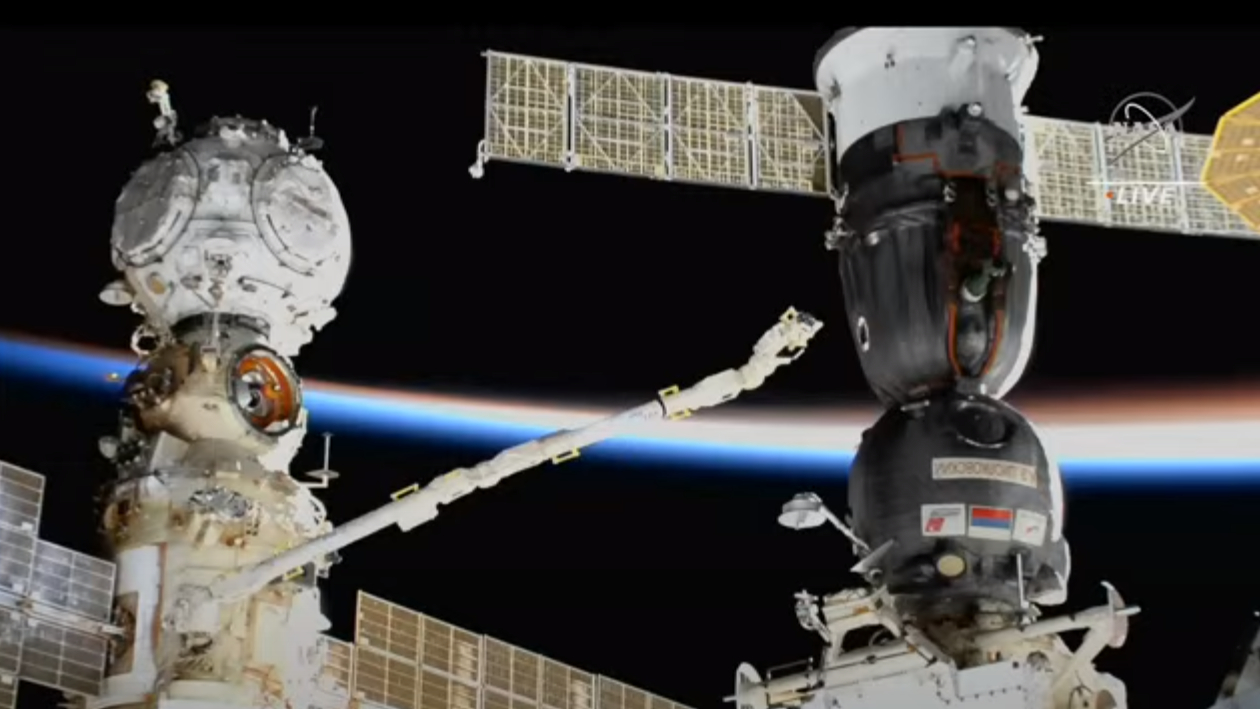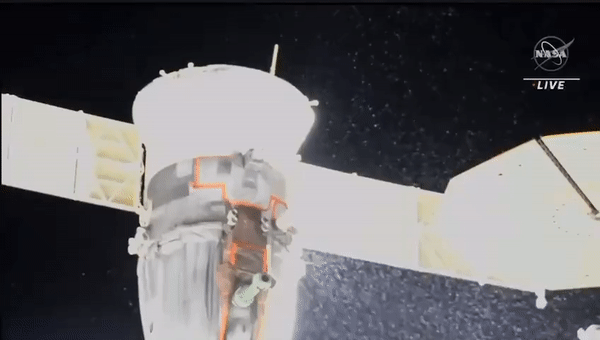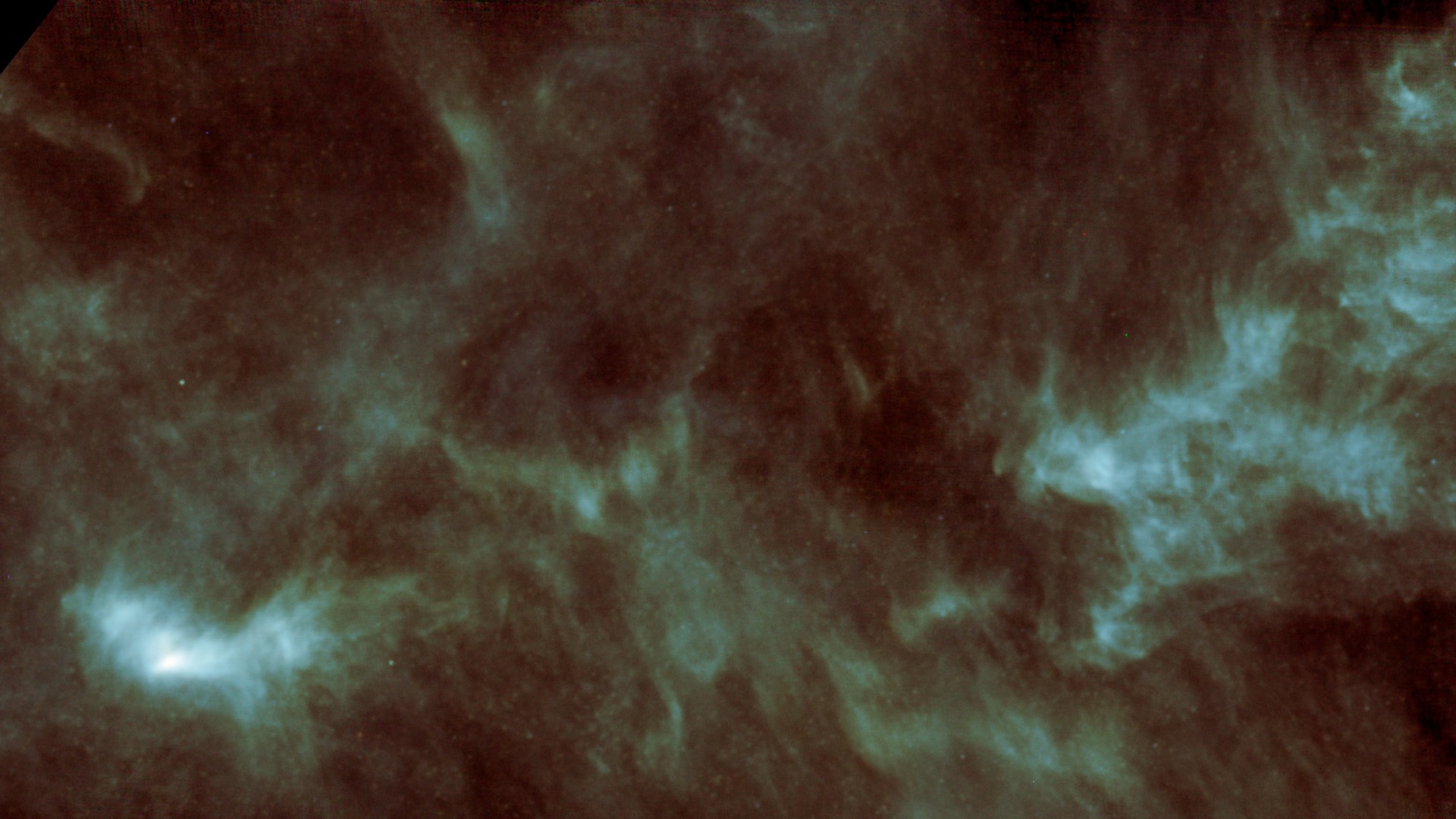Soyuz capsule leak at space station prompts Russia to postpone another spacewalk
The Soyuz spacecraft leak has forced Russia to cancel two spacewalks so far, but NASA has its own spacewalk set for Dec. 19.

Breaking space news, the latest updates on rocket launches, skywatching events and more!
You are now subscribed
Your newsletter sign-up was successful
Want to add more newsletters?

Delivered daily
Daily Newsletter
Breaking space news, the latest updates on rocket launches, skywatching events and more!

Once a month
Watch This Space
Sign up to our monthly entertainment newsletter to keep up with all our coverage of the latest sci-fi and space movies, tv shows, games and books.

Once a week
Night Sky This Week
Discover this week's must-see night sky events, moon phases, and stunning astrophotos. Sign up for our skywatching newsletter and explore the universe with us!

Twice a month
Strange New Words
Space.com's Sci-Fi Reader's Club. Read a sci-fi short story every month and join a virtual community of fellow science fiction fans!
Russia's space agency has called off another spacewalk at the International Space Station as engineers investigate why a Russian-built Soyuz spacecraft docked there began leaking coolant late Wednesday (Dec. 14).
Officials with Roscosmos, Russia's space agency, already postponed one spacewalk on Wednesday, when the Soyuz leak was detected as two cosmonauts were preparing to exit the station for a seven-hour excursion. Now, a second spacewalk planned for Dec. 21 is no longer in the cards.
"A Roscosmos spacewalk scheduled for Dec. 21 is indefinitely postponed as the team continues its investigation of the Soyuz spacecraft," NASA officials wrote in a statement Thursday.
Related: Soyuz spacecraft suffers 'fairly substantial' leak at space station
A NASA spacewalk scheduled for Monday (Dec. 19) is still expected to go on as planned, NASA officials said.
"The crew aboard station completed normal operations Thursday, including participating in science investigations and research, as well as configuring tools ahead of a planned U.S. spacewalk on Monday, Dec. 19," NASA officials wrote in the statement. "Specialists are working through robotic plans ahead of Monday’s spacewalk to best optimize for upcoming station operations and the Soyuz inspection."
The Soyuz spacecraft, called Soyuz MS-22, experienced an uncontrolled coolant leak Wednesday at 7:45 p.m. EST (0045 GMT on Dec. 15) that lasted for several hours, forcing Roscosmos to call off a spacewalk by cosmonauts Sergey Prokopyev and Dmitri Petelinto that aimed to move a radiator on the station's Russian segment.
Breaking space news, the latest updates on rocket launches, skywatching events and more!
The Soyuz spacecraft launched the two cosmonauts and NASA astronaut Frank Rubio to the station in September and serves as that crew's lifeboat and return ride home. It is docked at the station's Earth-facing Rassvet docking port.
Related: The most memorable spacewalks of all time in pictures
Late Wednesday, Russian cosmonaut Anna Kikina on the space station used the outpost's European Robotic Arm to inspect the stricken Soyuz capsule. NASA engineers plan to do the same using the station's Canadarm2 robotic arm. Roscosmos officials have reported spotting some damage on the Soyuz capsule after the leak.
It is unclear if the spacecraft can still be used to fly Petelinto, Prokopyev and Rubio to Earth when they're due to return in early 2023. None of the space station's crew were in any danger during the leak itself, NASA has said.
"Roscosmos is closely monitoring Soyuz spacecraft temperatures, which remain within acceptable limits," NASA officials wrote in the Thursday update. "NASA and Roscosmos continue to coordinate external imagery and inspection plans to aid in evaluating the external leak location."
Email Tariq Malik at tmalik@space.com or follow him @tariqjmalik. Follow us @Spacedotcom, Facebook and Instagram.

Tariq is the award-winning Editor-in-Chief of Space.com and joined the team in 2001. He covers human spaceflight, as well as skywatching and entertainment. He became Space.com's Editor-in-Chief in 2019. Before joining Space.com, Tariq was a staff reporter for The Los Angeles Times covering education and city beats in La Habra, Fullerton and Huntington Beach. He's a recipient of the 2022 Harry Kolcum Award for excellence in space reporting and the 2025 Space Pioneer Award from the National Space Society. He is an Eagle Scout and Space Camp alum with journalism degrees from the USC and NYU. You can find Tariq at Space.com and as the co-host to the This Week In Space podcast on the TWiT network. To see his latest project, you can follow Tariq on Twitter @tariqjmalik.

